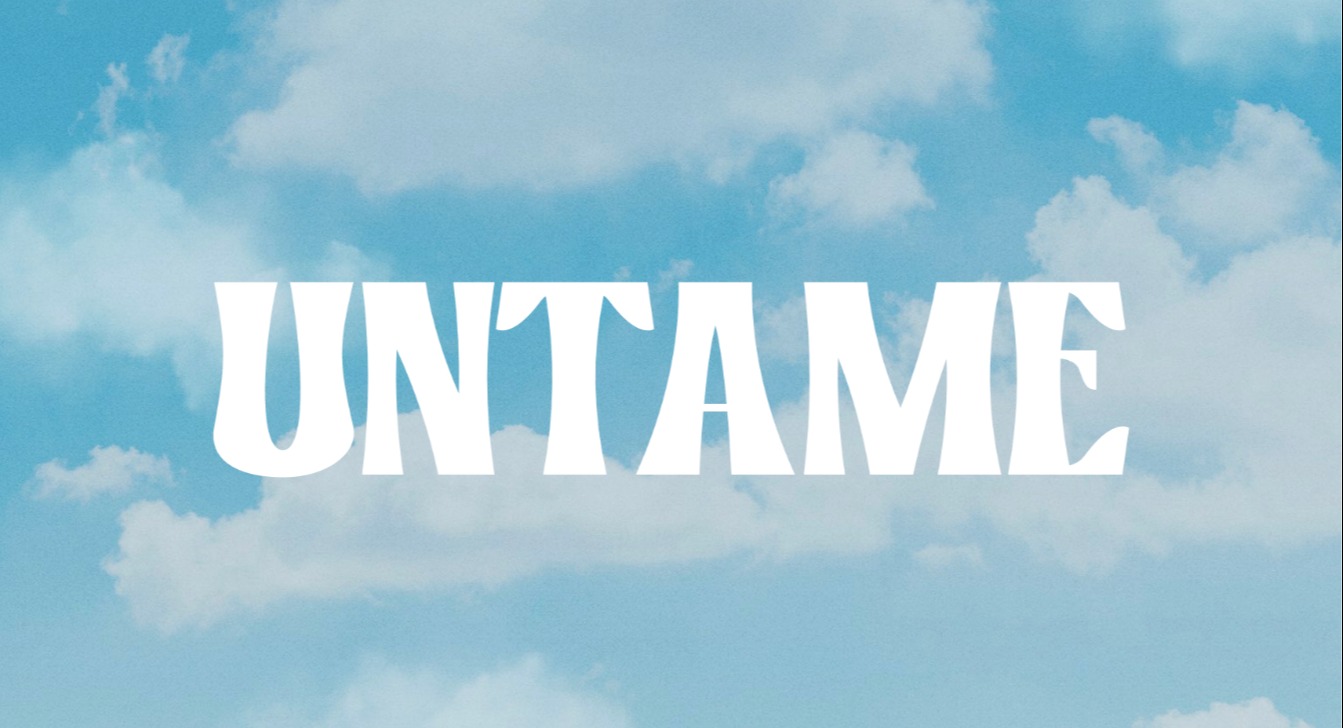
SSEF is an excellent platform for our budding scientists and engineers to showcase their passion in their respective fields by communicating their findings to industry experts. Selected winners will get to represent Singapore and compete at the ISEF.
SSEF is open to all secondary and pre-university students between 15 and 19 years of age. Participants can submit research projects which are student-initiated or from programmes such as Youth Research Programme (YRP), Nanyang Research Programme (NRP),
Science Mentorship Programme (SMP), Science Research Programme (SRP) and Young Defence Scientists Programme (YDSP) or projects done at A*STAR research institutes and schools. The project topics range across all areas of science and engineering.
SSEF 2024 Highlights
SSEF 2025
SSEF 2025 will be conducted in person at the Singapore Expo Convention Centre!
All students, teachers and members of the public are welcome to join us on Public Day on Wednesday, 12 March 2025, for a series of STEM-related activities and sharings as well as the announcement of SSEF 2025 Final Judging results.
Activity Schedule for SSEF 2025
| S/N | Process | Dates |
| 1 | Online Registration & Submission of Project Documents for Preliminary Judging | 18 Nov 2024 to 15 Jan 2025, 5pm |
| 2 | Submission of SSEF/ ISEF Forms by Teacher Coordinators | By 17 Jan 2025, 5pm |
| 3 | Preliminary Judging | Mid Jan to Early Feb |
| 4 | Submission of JS videos | By 3 Feb, 5pm |
| 5 | Release of Preliminary Judging Results and Remarks | 7-12 Feb |
| 6 | Student Finalists’ Briefing | 12 Feb, 3 pm |
| 7 | STEM for good! Contest SubmissionNEW | By 17 Feb, 5 pm |
| 8 | Public Voting for JS Video Contest | 17 to 28 Feb, 5pm |
| 9 | Set-Up Day | 10 Mar |
| 10 | Final Judging | 11 Mar |
| 11 | Public Day & Announcement of Final Judging Results | 12 Mar |
| 12 | ISEF | 10 to 16 May |
SSEF 2025 Preliminary Judging Results
Click here for the list of Student Finalists’ projects.
SSEF 2025 Junior Scientist Category
Click here to view the SSEF 2025 Junior Scientists' videos!
-
Participation Rules
Participation in the Singapore Science and Engineering Fair is contingent upon abiding by the rules stated below:
- SSEF is open to all (Singaporeans, PRs and foreigners) secondary and pre-university students studying in MOE schools and who are between the ages of 15 and 19 years. Shortlisted applicants from the Preliminary Judging round will participate in the SSEF Final Judging round.
- Projects for SSEF can be submitted either as an individual or a team project. Each SSEF team must comprise not more than three members.
- Only one project (individual or team) can be submitted per student. Students who submit more than one project may be disqualified from the competition.
- Interested applicants must successfully complete the online registration by 15 Jan 2025 5pm for their projects and submit their documents to be considered in the entry of the competition. Late online registrations will not be entertained.
- As SSEF is an Affiliated Fair of ISEF, it is necessary for SSEF participants to familiarise themselves with the ISEF International Rules and Guidelines as those rules are applicable to SSEF as well.
- Top winners of SSEF who are chosen to represent Singapore in the ISEF must be Singaporeans or PRs.
- For a research project to be eligible for SSEF, only research work conducted between 1 Jan 2024 and 14 Jan 2025 should be reported. The total duration of research done should not exceed 365 days. Refer to the table below for examples of eligible and ineligible research periods.
Research Start Date Research End Date Eligible? 1 Jan 2024 14 Jan 2025 No 1 Jan 2024 31 Dec 2024 Yes 1 Jan 2024 2 Jan 2025 No 15 Jan 2024 14 Jan 2025 Yes -
Application Procedure (Main Category)
The timeline for registration and submission of projects is provided below for reference:
Step Activity Deadline 1 Registration
Registration for SSEF 2025 Main Category is open from 18 Nov 2024
Each participant can only submit 1 project. For a team project, only 1 set of registration details and documentation should be submitted by the team leader.
Each Project must submit the following project documents:
o Abstract
o Report
15 Jan 2025, 5pm
(Open from 18 Nov 2024)2 Submission of Registration Forms
Students of projects which have been registered successfully will need to submit their registration forms to their respective schools’ SSEF Coordinators. The forms include:
o SSEF entry form
o ISEF forms
Schools’ SSEF Teacher Coordinators would need to collate and submit registration forms of projects from their schools. Details will be provided to SSEF Teacher Coordinators via email.
17 Jan 2025, 5pm
(Open from 18 Nov 2024)Project entries without online registration will not be considered for the Fair. Late entries will not be allowed to participate in SSEF 2025.
-
SSEF Entry Form (All Categories)
- All Main Category and Junior Scientist Category participants are required to complete the SSEF Entry Form.
- Only one form is required per project for participation in SSEF.
- The link to the form will be sent to your SSEF Teacher Coordinator by mid Nov 2024.
- Please click here for the list of SSEF 2025 categories and sub-categories. Please visit the ISEF website for a full description and definition of the categories and sub-categories.
-
ISEF Forms (Required for all Main Category Projects)
As SSEF is an affiliated fair of ISEF, all project entries must be accompanied by the relevant ISEF forms.
- Please click here to access the ISEF Rules Wizard. This wizard will help you determine what forms and approvals are necessary before beginning your research project intended for competition at SSEF and ISEF.
- To download the ISEF forms, please click here.
- All individual and team projects must submit the following forms:
- Form 1: Checklist for Adult Sponsor;
- Form 1A: Student Checklist, with Research Plan / Post Project Summary attached;
- Form 1B: Approval Form;
- Form 1C: Revised Regulated Research Institutional/Industrial Setting; required if the project has an external research mentor supervising the student research, either virtually or on site, conducted at a regulated research institution, industrial setting, or any work site other than home, school, or field. Please keep a copy of Form 1C which would be required in hardcopy for the judging at the Fair.
- Members of a team project should jointly submit Form 1, Form 1A and a Research Plan.
- In addition, projects that involve human participants, vertebrate animals, potentially hazardous biological agents and hazardous substances or devices will require review and approval by the Scientific Review Committee (SRC) and/or Institutional Review Board (IRB) prior to experimentation. These projects require other ISEF forms stated in the table below. Refer to the ISEF International Rules and Guidelines for more information about the forms required.
- Refer to the section on forming a Scientific Review Committee (SRC) and/or Institutional Review Board (IRB) for more information.
Form Description (1) Checklist for Adult Sponsor Required for all projects.
To be completed before experimentation.(1A) Student Checklist Form and Research Plan Required for all projects.
The research plan and post project summary should be attached with ISEF Form 1A and submitted with the other forms.(1B) Approval Form Required for all projects.
A completed form is required for each student, including all team members.
To be completed before experimentation.(1C) Revised-Regulated Research Institutional/ Industrial Setting Form Required for projects with an external research mentor supervising the student research, either virtually or on site, conducted at a Regulated Research Institution, industrial setting, or any work site other than home, school, or field.
To be completed and signed by the Direct Supervisor or Qualified Scientist after experimentation.(2) Qualified Scientist Form Required for projects that involve human participants, vertebrate animals, potentially hazardous biological agents and hazardous substances and devices.
To be completed and signed by the Direct Supervisor and/or Qualified Scientist before experimentation.(3) Risk Assessment Form Required for projects involving human participants, hazardous chemicals, materials or devices or potentially hazardous biological agents.
To be signed before experimentation by the Direct Supervisor or Qualified Scientist.(4) Human Participants Form (with Human Informed Consent Form) Required for all research involving human participants, not at a Regulated Research Institution. If at a Regulated Research Institution, use institutional approval forms for documentation of prior review and approval.
IRB approval is required before experimentation. The educator on the IRB panel cannot be the Adult Sponsor.(5A) Vertebrate Animal Form Required for all research that involves vertebrate animals conducted in a school/home/field research site.
SRC approval is needed before experimentation.(5B) Vertebrate Animal Form Required for all research that involves vertebrate animals conducted at a Regulated Research Institution.
IACUC approval is needed before experimentation.(6A) Potentially Hazardous Biological Agents Risk Assessment Form Required for all research involving microorganisms, rDNA, fresh/ frozen tissue (including primary cell lines, human and other primate established cell lines and tissue cultures), blood, blood products and body fluids.
SRC/IACUC/IBC approval is needed before experimentation.(6B) Human and Vertebrate Animal Tissue Form Required for research involving fresh/ frozen tissue (including primary cell lines, human and other primate established cell lines and tissue cultures), blood, blood products and body fluids. If the research involves living organisms, please ensure that relevant forms for human participants or vertebrate animals are completed. All projects using any tissue listed above must also complete Form 6A.
To be completed before experimentation.(7) Continuation/ Research Progression Projects Form Required for projects that are a continuation/ progression in the same field of study as a previous project. This form must be accompanied by the previous year's abstract and Research Plan/ Project Summary. Click here for our guide to completing the ISEF forms. Do note that you will have to download the document to make full use of the navigation features.
-
Project Documents Requirements (All Categories)
Each project should submit the following a project abstract and report via the link (which will be provided to teacher coordinators) between 18 Nov 2024 and 15 Jan 2025, 5pm. Applicants are strongly advised to complete and submit the documents as early as possible.
Students are advised to type their project abstract, report and Research Plan using 12-point Times New Roman font (or equivalent) with 1.5 line-spacing on a PDF format.
The requirements for ALL project documents are in the following table:
REQUIRED to be included on the upper right-hand corner of each page NOT to be included on any document o Project Code (eg AS001)*
o Project Title
o Names of students
*Project Codes will be generated during the registration processo Names/logos of schools
o Names/logos of research institutes
o Names of teacher/research mentors
o Acknowledgement sectionThe project documents comprise the following:
Project Abstract is a concise summary of the report with no more than 250 words or less than 1800 characters, which will be used during project judging and for visitors during the public day. It should not include acknowledgements (such as the name of the school, name of mentor or research institutions) or external endorsements.
Please click here for the suggested template.Project Report describes the actual laboratory, field or theoretical research (not library research) for the project. It should involve ideas and preferably, data generated by the student.
Credit must be given to the appropriate source and reference, including, in the event that generative artificial intelligence was used, how it was utilised in the authoring of the project report, beyond basic spelling and grammar checks.
It should include (a) Background and Purpose of the research area, (b) Hypothesis of the research, (c) an Experimental section including Methods and Results, (d) Conclusion including a Discussion of the Results and Implications and (e) Bibliography of References.
Students are advised not to exceed seven pages, inclusive of data in tables, figures and diagrams. References and appendices do not count towards the seven-page limit. To ensure fairness across submission, judges have been advised that they can ignore any part of a report that exceeds the seven-page limit.
Please click here for the suggested template. -
Judging Criteria (All Categories)
The judging criteria for SSEF 2025 are as follows:
Pre-judging Criteria Weighting (%) Final Judging Criteria Weighting (%) Research Question/Problem 10 Research Question/Problem 10 Design and Methodology 20 Design and Methodology 20 Execution 25 Execution 25 Creativity 20 Creativity 20 Presentation (based on the written report) 25 Presentation (Total 25%) Poster - 7
Interview - 18Each criterion has been elaborated, please click here for the Pre-Judging criteria and here for the detailed Final Judging criteria.
The judges' decisions are final, and no correspondence will be entertained.
More details about the presentation materials required for Final Judging will be provided at a later date.
Applicants are strongly encouraged to visit the official ISEF website to view past projects and obtain other information that may be pertinent to SSEF.
-
Information for Schools: Scientific Review Committee (SRC) and Institutional Review Board (IRB)
A school-based SRC may be formed to assist the Affiliated Fair SRC in reviewing and approving projects. All SRC members must be familiar with the ISEF Rules and Guidelines during the review process. These guidelines are intended to ensure the safety of students, to protect the subjects and environments studied and to limit the liability of the adults who assist with the projects. Hence, it is important that the SRC ensures all projects abide by these rules and guidelines.
An IRB is a committee that must evaluate the potential physical and/or psychological risk of research involving humans. All proposed human research must be reviewed and approved by an IRB before experimentation begins. This includes a review of any surveys or questionnaires to be used in the project.
The Affiliated Fair SRC may override the decision of a school-based SRC/IRB if the decision is deemed inappropriate.
The ISEF International Rules and Guidelines further elaborate on the composition and responsibilities of the review committees. Schools that are interested to set up their SRCs/IRBs are to complete the acknowledgement form here and submit via email to upstream@science.edu.sg or mail it to:Attn: Science Upstream (SSEF 2025)
Science Centre Singapore
15 Science Centre Road
Singapore 609081A reply endorsing the setting up of any new school-based SRCs/IRBs must be given by the Fair Director before the review committee can perform their role.
-
Junior Scientist Category
The Junior Scientist Category under SSEF is open to all budding and passionate scientists who have conducted research and projects in the preceding year either as Secondary 1 or 2 students in 2024.
Students are required to submit a science or engineering project that they have done as an individual or a team of not more than three members and present their ideas to judges during SSEF.
Outstanding projects stand to win attractive prizes.
Participation Rules:
- The competition is open to all (Singaporean, PRs and Foreigners) Secondary level students studying in MOE schools.
- Projects can be submitted as an individual or team projects of up to three members.
Submission Procedure
Interested participants are to follow the following steps to register and submit the relevant documents by the stated deadlines.
Step Activity Deadline 1 Registration and Submission of Project Documents
Each participant can only submit 1 project. For team projects, only 1 form should be submitted by the team leader.
Registration and the submission of project documents for SSEF 2025 Junior Scientist Category will open on 18 Nov 2024.
Each Project must submit the following project documents:
o Abstract
o Report
15 Jan 2025, 5pm
(Open from 18 Nov 2024)2 Submission of SSEF Entry Form
Students of projects which have been registered successfully would need to submit their SSEF entry form . Details on submission will be provided via email.
17 Jan 2025, 5pm
(Open from 18 Nov 2024)3 Submission of Video
A short video (max 2 minutes) will be part of the entry requirements for the competition. Details of the rules and how participants submit the videos can be found here.
All Junior Scientist projects must submit a video via the SSEF portal as part of the competition.3 Feb 2025, 5pm 4 Video Contest: Public's Popular Vote 17 to 28 Feb 2025, 5pm 5 SSEF Final Judging Day 11 Mar 2025 Click here to view the SSEF 2025 Junior Scientists' videos!
-
Booking of Lab Equipment
To provide students with specialised equipment needed for their research projects. Click here to book your slots!
-
Past Winners
SSEF 2024
Click here for the list of SSEF 2024 Award Winners.
SSEF 2023
Click here for the list of SSEF 2023 Award Winners.
Click here for the list of SSEF 2023 Junior Scientist Award Winners.
SSEF 2022
Click here for the list of SSEF 2022 Award Winners.
Click here for the list of SSEF 2022 Junior Scientist Award Winners.
Click here for the SSEF 2022 eBooklet!
SSEF 2021
Click here for the list of SSEF 2021 Award Winners
Click here for the list of SSEF 2021 Junior Scientist Award Winners
Click here for the SSEF 2021 eBooklet
SSEF 2020
Click here for the list of SSEF 2020 Award Winners
Click here for the list of SSEF 2020 Junior Scientist Award Winners
SSEF 2019
Click here for the list of SSEF 2019 Award Winners.
Click here for the awards received by the Singapore representatives at the ISEF 2019.
SSEF 2018
Click here for the list of SSEF 2018 Award Winners.
Click here for the awards received by the Singapore representatives at the ISEF 2018.
SSEF 2004 to 2017
Click here for the list of SSEF 2004 to 2017 Award Winners.
-
SSEF Public Day Activities
STEM Talks and SSEF Public Day
The objectives of STEM Talks and SSEF Public Day are:
- To spark students’ curiosity in STEM through:
- demonstrating how STEM learning in the classroom is relevant in the real world
- showcasing how STEM helps us make sense of the world around us and overcome some of the complex problems of our times
- To help students gain a better understanding of STEM professions, which may enthuse them to take up STEM careers in the future
Online STEM Talks
STEM Talks offered by our industry partners will be held online this year. Participants will have an opportunity to engage with expert speakers, enabling them to gain insights into the real-world applications of STEM and understand more about various STEM careers.
Please refer to the table below for details of the STEM talks.
Session Session 1 Session 2 Date (Day) 26 Feb 2025 (Wednesday) 28 Feb 2025 (Friday) Time 3.00 to 4.15 pm 3.00 to 4.15 pm Format Online via Teams Meet
(details of the meeting will be sent to registered participants)Online via Teams Meet
(details of the meeting will be sent to registered participants)Information of Talks
Talk 1 by HTX
Title:
From Student to Innovator: Growing with HTX
Speaker:
Natasha Koh (Engineer, Threat Scanning Technology & Analytics, CBRNE CoE)
Synopsis:
This talk explores an Engineer's journey in HTX (Home Team Science and Technology Agency) as her first job out of university. The speaker will introduce HTX and share her experiences since joining as a fresh graduate, including her role as an HTX Associate, her work in CBRNE (Chemical, Biological, Radiological, Nuclear & Explosives) and later in the xData division. Attendees will gain insight into an HTX Engineer's daily life and learn how the speaker successfully pivoted from science to the digital domain, all within her first job after graduation.Talk 1 by DSO
Title:
From Concept to Reality: The Development of the V15 Unmanned Aerial Vehicle (UAV)
Speaker:
Wilson Lee (Lead Control Systems Engineer, Small Tactical Aerial Robotics Program)
Synopsis:
Join us as we delve into the fascinating journey behind the development of the V15 hybrid unmanned aerial vehicle (UAV) system. In this talk, you will discover the operational challenges we faced, celebrate the remarkable achievements of the V15 UAV, and gain a glimpse into the promising future of our homegrown unmanned aerial systems.Information of Talks Talk 2 by DSTA
Title:
Pushing the Frontiers of Defence Technology
Speakers:
1) Lim En-lye Perrie (Senior Engineer, Digital Hub)
2) Elango Praveen (Engineer, Digital Hub)
Synopsis:
Singapore’s national security and deterrence factor is underpinned by our cutting-edge defence technologies and capabilities.
The war in Ukraine highlights how technological innovation is indispensable, particularly in electronic warfare through AI, cybersecurity, and robotics including drone countermeasures such as GPS jamming.
We share on how our interests in Science & Technology contribute in our journey of developing and delivering autonomous systems that keep Singapore safe.
Students would also learn about opportunities for students to contribute through exciting programmes and internships.Talk 2 by A*STAR
Title:
Precision Surgery on Human Genes
Speaker:
Chew Wei Leong (Senior Principal Scientist and Associate Director)
Synopsis:
For all of human history, we live with the genes we are born with. Our genes had been a fixed blueprint, determining the diseases we might experience, the traits we exhibit, and the shared connections with our families. But there have been few cures available for the many mutations in our genes that cause diseases, ranging from inherited diseases to cancers. What if we could perform precision surgery on our genes? Can we cure human diseases at the root cause? Today we share experiences in the quest for DNA and RNA editing technologies that create a new class of medicines.
You may register using this form (or by scanning the QR code provided below). Public day
SSEF Public Day is taking place on Wednesday 12 March 2025, 12.00 pm to 4.00 pm at Singapore Expo Convention Centre, Hall 3.
Activities on Public Day
Look forward to sharing by SSEF finalists on their research projects and hands-on activities offered by our industry partners.
The theme of activities offered by our industry partners for SSEF Public Day 2025 are listed below.
Sponsor/ Partner
Theme
A*STAR /NMC
Importance of Metrology in STEM
HTX
Understanding HTX’s Role in Crime Solving, Public Safety and Security through Games
DSO
V15 Unmanned Aerial Vehicle (UAV) and Technologies of Hybrid Fixed Wing - Vertical Take Off and Landing (FW-VTOL) Flight Control
DSTA
Coming soon!
Altimate
Insects as Future Foods
CTRL X SHIFT
Science, Technology and Engineering
LTA
Learn more about LTA
Crunch Cutlery
Automated Edible Cutlery Manufacturing
MPA
Decarbonising Maritime Singapore
NQO
Singapore’s Research in Quantum Technologies
Space Faculty
Satellite Technology
SLA
Exploring the Science of Survey & Geomatics
Temasek Lab
Propagation of Plants via Tissue Culture
Trinax
AI Avatar Chatbots
RSVP now!
Schools are strongly encouraged to RSVP to Public Day (by 28 Feb 2025) to receive:
- Early access to the e-Learning Passports
- Important
information about Public Day and the available activities that the students can
engage in.
Schools may RSVP using this form.
Past SSEF Fringe Activities
Click here to access the past virtual fringe activities.
- To spark students’ curiosity in STEM through:
-
STEM for Good! contest
As part of the SSEF 2025 Silver Jubilee and SG60 twin commemoration, SSEF will be holding the STEM for good! Contest, to showcase the social impact that STEM can have on society. In the process, we hope that students can be Curious, be Creative and be the Change – to exercise their critical, adaptive and inventive thinking, and communicate their ideas on how Singapore of the future can be made better with STEM!
Participants of this contest are to submit a one-page infographic in response to the following prompt:
Identify a future problem or challenge that could arise in 10 – 20 years’ time in Singapore and explain how STEM can be applied to solve the problem, along with how the proposed solution can benefit Singapore and/or humanity. The infographic should include:
• The identified problem/issue, why it is likely to arise and why it is important;
• How STEM knowledge and ideas can be used to solve or mitigate the identified problem;
• How this STEM solution can also benefit society at largeStudents from MOE schools are eligible for the contest, under the following categories: Upper Primary (Primary 4-6), Lower Secondary (Sec 1-2 / IP Year 1-2), Upper Secondary (Sec 3-5 / IP Year 3-4) and Pre-University (JC/CI / IP Year 5-6).
Students who are participating in SSEF 2025 Main Category or Junior Scientist Category are allowed to participate in this contest.
Registration and Submission: Please register and upload the infographic (no more than 7MB size) through this FormSG by 17 Feb 2025, 5pm.
Late entries will not be entertained.
Entries will be judged based on the following:
- Identification of problem/issue;
- Accuracy of content and appropriate justification of ideas;
- Usefulness and impact of solution; and
- Organisation and presentation of content
Please click here for more information on the contest!
STEM for good! Contest Timeline
S/N Processes Dates Remarks 1 Announcement of contest 11 Oct 2024 (Friday) Link to registration and submission form 2 Deadline for registration and submission of infographics 17 Feb 2025 (Monday), 5pm 3 Awards for top entries per level category during SSEF Award Ceremony 12 Mar 2025 (Wednesday)
Details of award ceremony will be released later.
Contact Us
Should you have any queries regarding your application, please contact any of the following:
| Name | Email Address | Telephone |
| Mr Wesley Lim | Wesley_Lim@science.edu.sg | N/A |
| Mr Redza Adly Esmadi | Redza_Adly_Esmadi@science.edu.sg | N/A |
| Ms Talya Pang | Talya_Pang@science.edu.sg | N/A |
| Mr Dominic Koh | Dominic_Koh@moe.gov.sg | 68795737 |
| Ms Priscilla Chua | Priscilla_Chua@moe.gov.sg | 68796589 |
| Mr Chng Chia Yi | Chng_Chia_Yi@moe.gov.sg | 68796603 |
| Ms Sheena Cheong | Sheena_Cheong@moe.gov.sg | 68796842 |
| Ms Koh Jia Rui | Koh_Jia_Rui@moe.gov.sg | 68795600 |
| Dr Hazel Wong | Hazel_Wong@moe.gov.sg | 68797537 |
Organised by:






.jpg)

d1-01.jpg)


